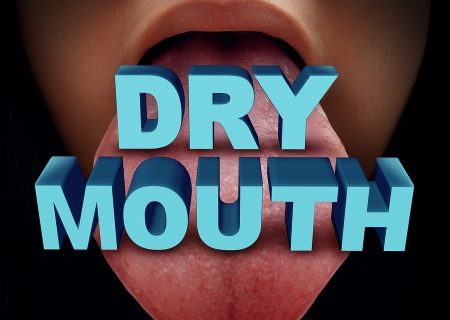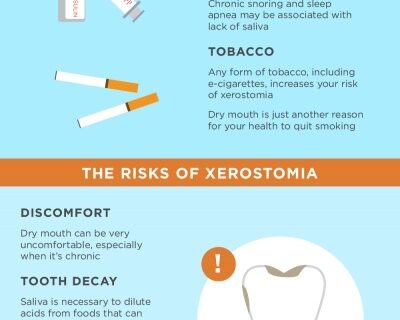THE SYMPTOMS OF XEROSTOMIA
Although we may not think about them often, saliva has plenty of biological uses. Unfortunately those who suffer from xerostomia have trouble producing an adequate amount of saliva. This can make it difficult to chew and swallow food properly, lead to problems like gum disease, and even cause bad breath. The sooner you understand what xerostomia is like, however, the sooner you can recognize your symptoms and seek treatment. Continue on for a look at the symptoms of xerostomia.
Having Trouble Eating
Saliva serves a few important roles when it comes to both oral and general health. While your teeth allow you to break down the food you intend to swallow, they don’t handle this task alone; saliva is also responsible for this process. Saliva helps your teeth break down your food so that it is safe for consumption. When your body fails to produce a normal amount of saliva, you can run into trouble when you try to eat. Xerostomia can make it difficult to chew and swallow your food, and it can even change the way your meal tastes. If this condition is preventing you from eating or speaking normally, talk to your dentist about possible solutions.
Other Oral Complications
Another responsibility that saliva takes on is geared more towards your oral health. The acids, bacteria, and food debris that are left in your mouth after you finish a meal constantly threaten your teeth. Fortunately saliva helps to remove these contaminants from your teeth and flush them away. When you lack saliva, this food and debris is allowed to stay on the surface of your teeth, increasing your chances of suffering from decay. In this way a lack of saliva can break down your defenses and make you more vulnerable for a host of oral conditions.
Halitosis
Some people, especially those who drink plenty of water, might not notice these symptoms of Xerostomia. However, they might realize that something is wrong when they notice that their breath constantly smells bad. Unfortunately, Xerostomia often causes bad breath, so make a date with your dentist before you make one with anyone else.



